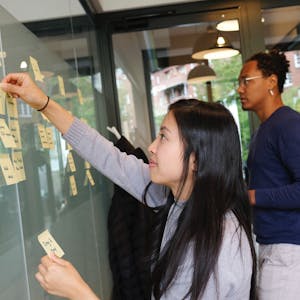Machine Learning for Accounting with Python
About this Course
This course, Machine Learning for Accounting with Python, introduces machine learning algorithms (models) and their applications in accounting problems. It covers classification, regression, clustering, text analysis, time series analysis. It also discusses model evaluation and model optimization. This course provides an entry point for students to be able to apply proper machine learning models on business related datasets with Python to solve various problems. Accounting Data Analytics with Python is a prerequisite for this course. This course is running on the same platform (Jupyter Notebook) as that of the prerequisite course. While Accounting Data Analytics with Python covers data understanding and data preparation in the data analytics process, this course covers the next two steps in the process, modeling and model evaluation. Upon completion of the two courses, students should be able to complete an entire data analytics process with Python.Created by: University of Illinois Urbana-Champaign
Related Online Courses
In this 3-course specialization, you will learn to see nature the way a biologist does. You will gain an understanding and appreciation for the incredible diversity of life and the interdependence... more
This course focuses on the climate impacts occurring and expected to occur across the United States. Our approach will be regional and sectoral, with consideration of impacts on water resources,... more
By the end of this project, you will have created a free account, added tasks, and set goals to your ClickUp workspace. You will learn how to customize your workspace and add folders and lists to... more
The field of analytics is typically built on four pillars: Descriptive Analytics, Predictive Analytics, Causal Analytics, and Prescriptive Analytics. Descriptive analytics (e.g., visualization, BI)... more
This course presents the different customer interactions that happen in a retail setting and allows you to experience real interactions through simulations and scenarios. Interactions examined... more








